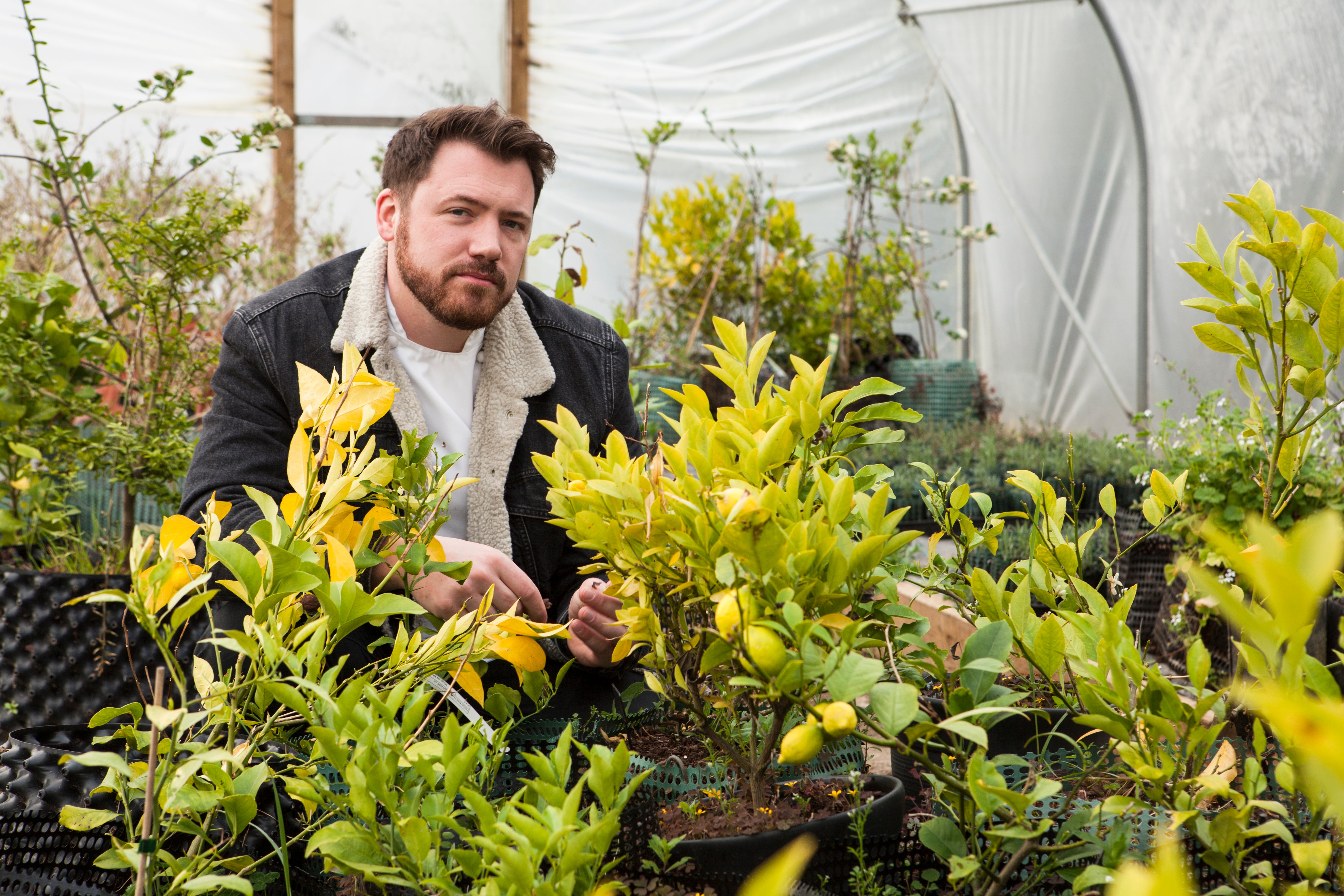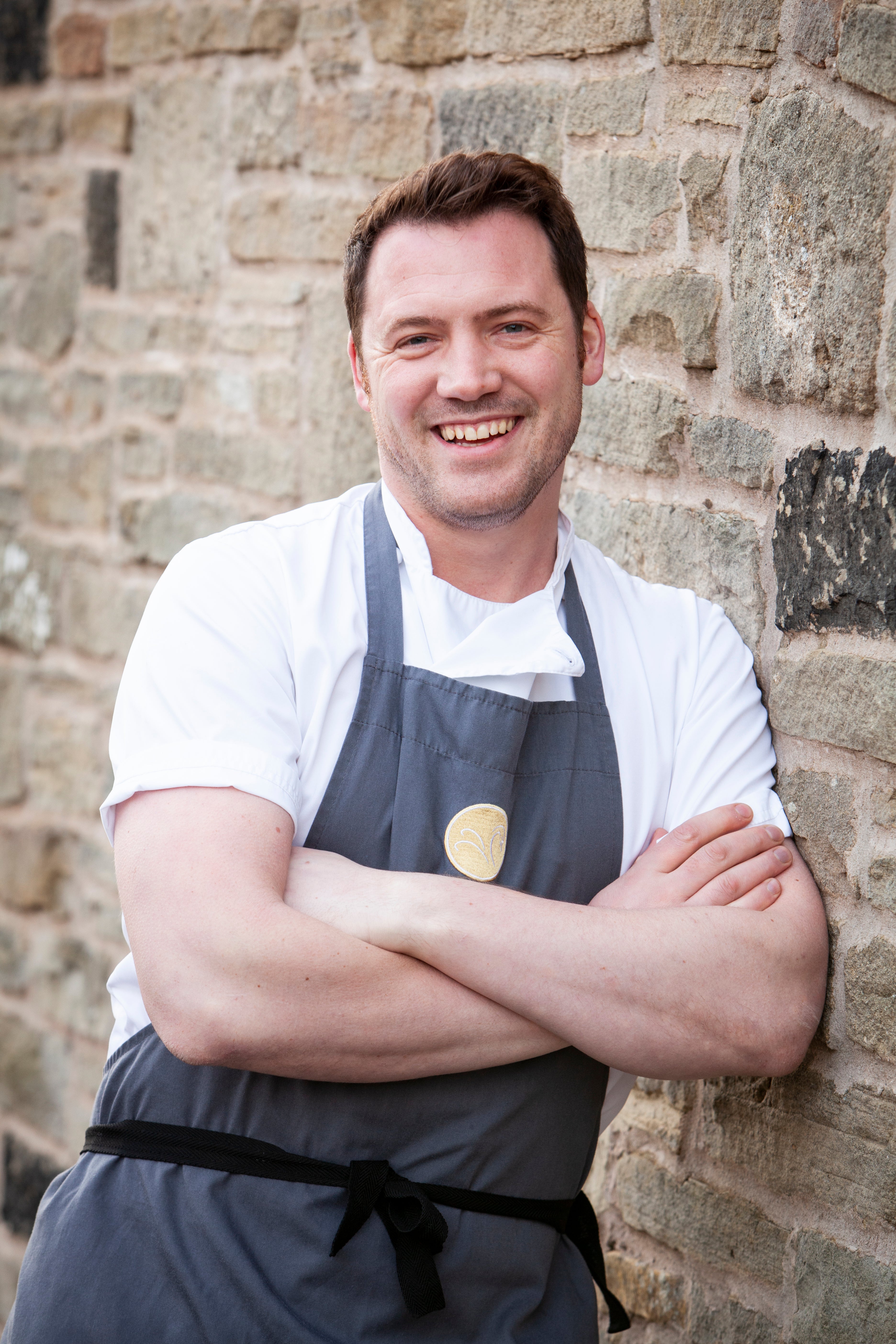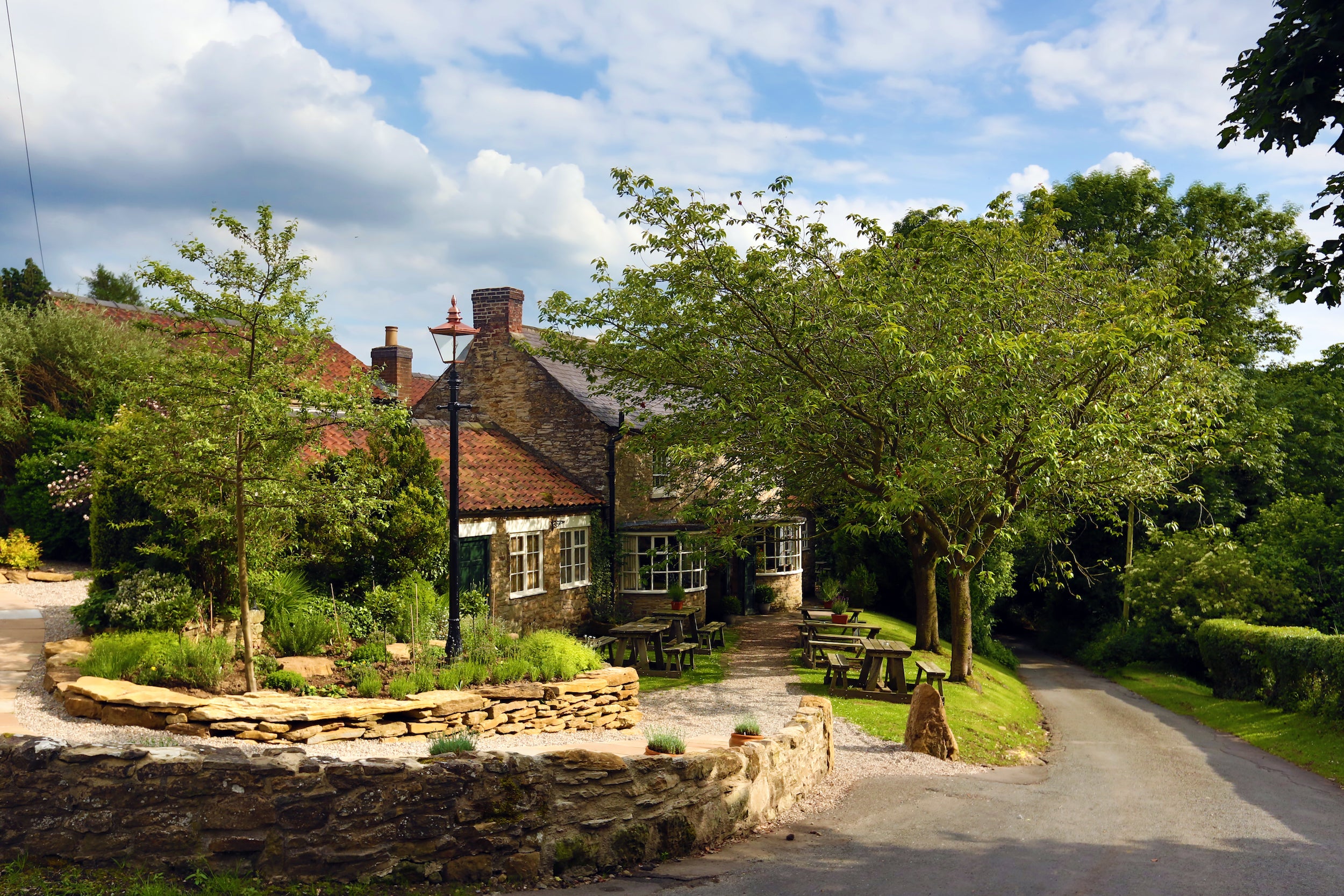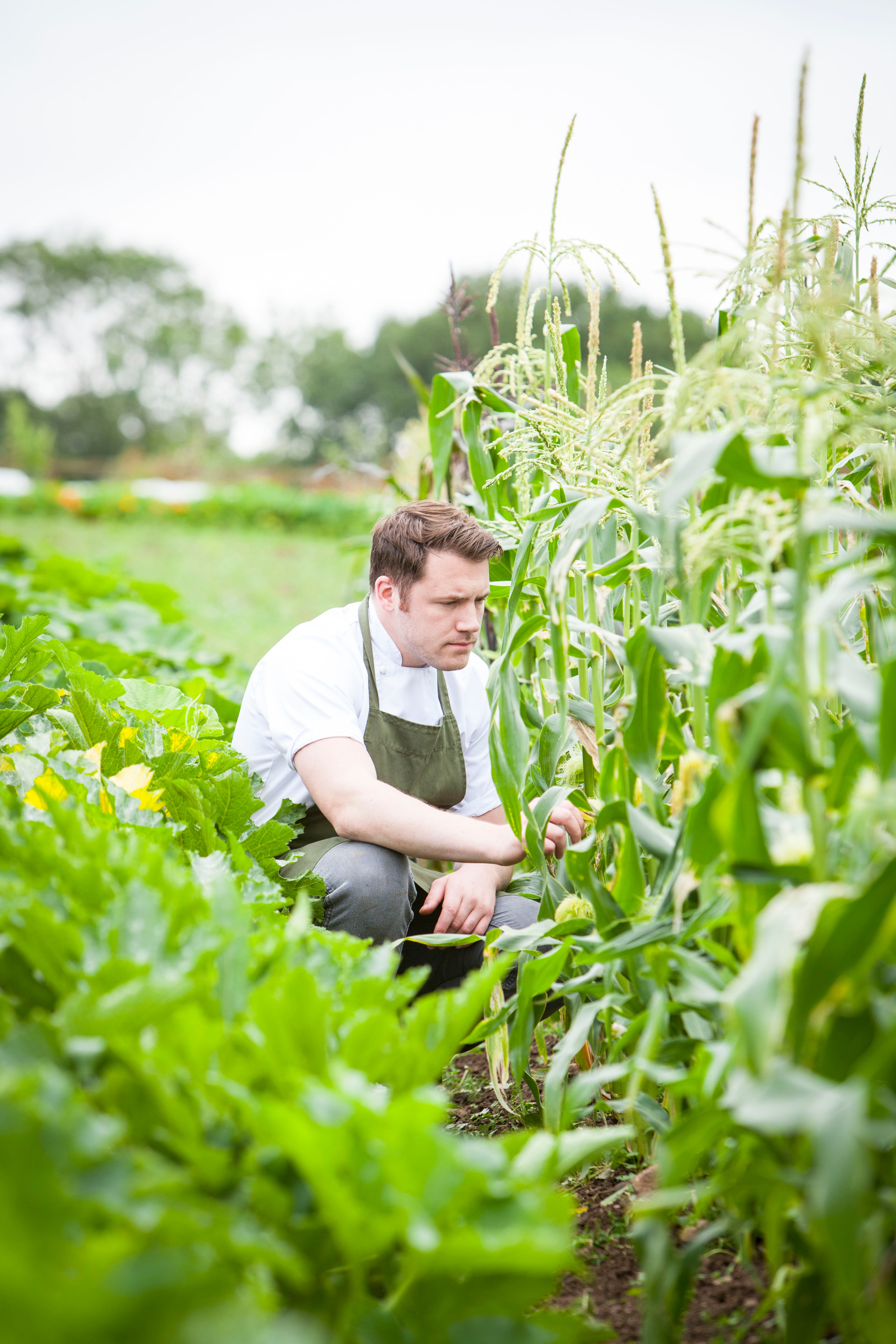The Black Swan’s Tommy Banks on food boxes, foraging and his favourite ingredients
The Michelin-star chef turned his attention to creating delicious ‘Made in Oldstead’ food boxes in lockdown, but now he’s looking forward to reopening. He speaks to Sean Russell about the last year, his inspirations and his best tips for foraging elderflower


What is your first career-defining memory of food?
When I was about 18, I was just starting out learning to be a chef and I went to Restaurant Gordon Ramsay for my birthday. I was probably in my school leavers suit and I remember that just opened my eyes massively, I didn’t even know what a Michelin Star was, and I remember having these langoustine ravioli that he does, and my mind was absolutely blown.
Can you tell me about the first time you stepped foot in a professional kitchen?
I never wanted to be a chef, but my family took over the Black Swan in 2006 and when I left school I used to pot wash, wait on tables and do that sort of thing and my brother would run the front of house. I just wanted to play cricket, that’s all I wanted to do. Then one of the chefs walked out one day, or some such drama, and my dad just bought me a chef’s jacket and knife roll and was like “right, you’re going in the kitchen now!”
What was the most important kitchen experience of your career?
I think the most important experience actually was when I became the head chef, I was only just 24 and obviously you don’t really know what you’re doing and I became a bit of a control freak. I thought if I just cook everything myself, then it’s all going to be alright. But that was a defining experience, I’d learnt I could cook really good food but what I was doing was wholly unsustainable, I needed to learn how to delegate and build a team and train people and things like that. Now I run three food businesses with lots of chefs and you need to employ great people and work with them and you only find that out once you’ve messed it up.
Is there one book you believe is the ‘bible’ of cooking?
The first book I had was Prue Leith’s Cookery Bible, which has a recipe for everything in it, which I quite like. But I think the most excellent books are Thomas Keller’s, the American chef, and definitely early in my career, when sous vide (under vacuum) became a thing, he had a book about how you can cook anything at any temperature sort of thing, so I think his books have been very influential.
Which chefs do you look to for inspiration?

I think one chef who has inspired me is Sat Bains. When I first took over as head chef, I was 24 and I retained the Michelin Star which was great and I got a lot of plaudits for that, but I was cooking food out of other people’s cookbooks and copying and stuff like that, and I felt very much like I need to be out doing my own thing. I remember going to eat a Sat Bains’s and I thought wow his food is so individual, like he has his own thing and it’s not like anyone else’s. I wanted to create something that people look at and say “that’s a really Tommy Banks thing, that” and I found that really inspiring, so from a creative point of view, Sat Bains.
How would you describe the food at the Black Swan Oldstead?
I've never worked anywhere else or trained or travelled that much, so I kind of looked at my background which is in farming and we started growing all the food ourselves and that’s kind of like the most important thing to the food at the Black Swan. The food has evolved over the years but right now it’s totally ingredients-led because we are growing really great things and paying the ultimate respect to them – that sounds such cliche chef nonsense! We make our plans the year before; we’re sowing the seeds, we’re nurturing the crops and then we’re harvesting them and then we’re getting them onto the menu or preserving them in a way we can use them late in the year and that’s the DNA behind it. Hopefully, it’s farm to table but in the most refined, polished way.
How important is Oldstead to the food you produce?
It’s off the beaten track and I think it’s a real journey to get to us and that’s a brilliant thing because it really adds to the experience. You’re driving out to the middle of the beautiful countryside in the middle of nowhere, you’re not on a city break you’re literally making a journey across the country and I think that gets into the psychology of it and gets you into this event of going somewhere really special.

What is your number one tip for foraging?
There are so many things that are edible in the British countryside but not all of them are delicious. It’s about picking things that are truly delicious. An easy tip is that, while wild garlic is in season, the easier one is elderflower. Elderflower is absolutely delicious, nobody can deny that. Some of the things people forage and put on plates aren’t actually that nice. But elderflower is delicious and you can make cordials and things like that. But my tip is oil and vinegar. Put your elderflower in oil or vinegar and infuse them and then you have this wonderful flavour to use for mayonnaise or vinaigrette or as a dressing.
The biggest tip for elderflower though is that you need to pick them when the pollen is at its highest because that’s when you get the most flavour from flowers. There will be elderflowers all over the trees but we’ll have a rubbish week, a bit cold, a bit cloudy and we just don’t touch them even though we have a target. And then when that sunny day comes and you pick them and your hands are covered in pollen and your clothes are covered in pollen then we go for it. So my tip for picking elderflower is pick them on a bright, sunny day.
Read more from this month’s IndyEats:
What ingredient couldn’t you live without?
Salt. Well, Maldon Sea Salt is my favourite, but I just think it sounds awfully obvious, but you couldn’t live without salt. Have you ever had a loaf of bread that someone’s forgot to put salt in? It’s absolutely disgusting. And you think how can something go from being delicious to completely inedible just with salt?
What happened when lockdown first started?
That was awful. It was really scary. As subsequent lockdowns came we knew more about how we can deal with it but that first one was properly rug-out-from-beneath-your-feet. Initially it was a very stressful time. The first thing I was thinking was, how are we going to look after our staff? And I remember thinking this was 14 years of work and we’re going to lose it overnight. But when the furlough scheme came in I was hugely relieved about how we could sustain all of our team. You tell everyone it’s going to be fine but it wasn’t until furlough that I felt relief.

After that I thought I wanted to give it a go and so we started the food boxes, preparing restaurant-quality meals that customers just heated up at home. At the time there was no security, we didn’t know if we could open our businesses again. And we wondered if we would be bankrupt and it felt riskier sitting there doing nothing than to at least have a go and fail. What’s the worst that’s going to happen? It seems obvious now but at the time it was new and it became hugely successful. And Made in Oldstead started off as me and a couple of chefs who just started working for us and now we have about 35 people working full time on the project, but at the time it was just desperately trying to do something.
What has been the most popular dish/box?
The signature box has been the most popular. We do a range of boxes, from ones I think are really good value for money where you get a two-three course meal for about £50. But the most expensive box has been the most popular which is five courses, a really good bottle of red wine which goes with the main course, which is beef wellington and a chocolate fondant for dessert. These are two things which are super classic, but things that people may not necessarily cook at home but they can put them in the oven for an allotted time, take it out and it’s perfect and we’ve got quite a lot of preorders for the rest of the year. We’re also hoping to launch a barbecue box for the summer.
What are you most excited about when you reopen?
Everything! I'm excited to run service and to cook and to welcome people in. Normally I would meet so many people every week in a restaurant having a great time. But because we’ve been closed for so long, I’m just looking forward to cooking really high-end food. When we open we’re literally on the cusp of when our produce starts coming from the farm and so it couldn’t really be timed any better from a menu point of view. The menu is star-studded with all of my favourite ingredients. I think sometimes a rest is a good thing, normally I might be like ‘oh here’s some nice potatoes’, but now I’m just like “I cannot wait!”
Tommy Banks is the head chef of The Black Swan, Oldstead, North Yorkshire, which will reopen on 19 May and is taking bookings. Made in Oldstead dine-at-home boxes can also be ordered for delivery
Join our commenting forum
Join thought-provoking conversations, follow other Independent readers and see their replies
Comments